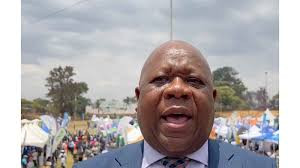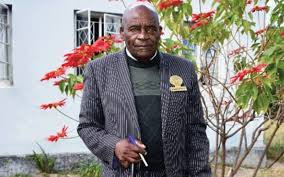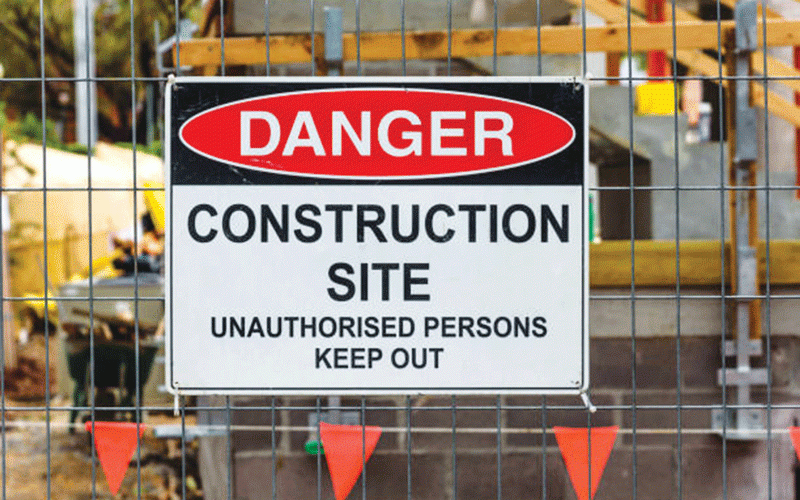
PRESIDENT Emmerson Mnangagwa undermining public confidence in the fight against corruption.
The Crisis in Zimbabwe Coalition has noted with great concern a declaration by Mnangagwa of May 5, 2023 to the effect that the State is not obliged to publicly disclose the procurement of certain materials in the health sector.
Through General Notice 635 of 2023, Mnangagwa, in terms of section 3(6) of the Public Procurement and Disposal of Public Assets Act (Chapter 22:23) declared the following products as “of national interest and shall not be publicly disclosed” — construction equipment and materials, biomedical and medical equipment, medicines and drugs, vehicles including ambulances, laboratory equipment, chemicals and accessories, hospital protective equipment and repairs and maintenance services of hospital equipment and machinery.
This new regulation, declaring certain procurement items to be of national interest and not to be publicly disclosed goes against the general principles of accountability and transparency.
It is curious to note that the government has distanced itself from the notice claiming it was gazetted without authorisation.
The Constitution of Zimbabwe under section 62(a) guarantees citizens the right of access to information held by the State or by any institution or agency of government at every level, insofar as the information is required in the interests of public accountability”. This includes information on public procurement.
Moreover, section 194 of the Constitution which sets out the principles governing public administration clearly states that public administration must be accountable to Parliament and the people and that transparency must be fostered by providing the public with timely, accessible and accurate information”.
The declaration by Mnangagwa undermines the Constitution and deprives citizens of their constitutional right to access information on the use of public resources for purposes of accountability and transparency.
- Young entrepreneur dreams big
- Chibuku NeShamwari holds onto ethos of culture
- Health talk: Be wary of measles, its a deadly disease
- Macheso, Dhewa inspired me: Chinembiri
Keep Reading
This ultimately undermines good governance as well as the second republic’s anti-corruption strategies.
It is unfortunate that the declaration by Mnangagwa comes at a time when Zimbabwe is continuing to witness a trend where public officials responsible for procurement (including ministers) have been accused of inflating prices, contracting unqualified service providers without following due processes, among other corrupt practices.
At the height of the COVID-19 pandemic in 2020, then Health minister Obadiah Moyo was arrested for criminal abuse of office after he awarded a US$60 million contract to a company that supplied COVID-19 protective equipment at inflated prices.
The awarding of the contract was done without the consent of the Procurement Regulatory Authority of Zimbabwe. Moyo was eventually booted out of Cabinet.
In 2021, the epidemiology and disease control director in the Health ministry Portia Manangazira was arrested after she authorised the procurement of goods worth US$280 529 without following due process. She was also charged for misappropriation of funds and fuel meant for the training of 800 community health workers.
Auditor-General Mildred Chiri’s office in 2021 revealed that there were serious irregularities in the handling of COVID-19 funds.
It is quite evident that the health sector in Zimbabwe has not been spared from high-level corruption and Mnangagwa’s recent declaration amounts to setting the cat among the pigeons.
The Crisis in Zimbabwe Coalition reiterates that Mnangagwa’s declaration undermines public trust in the ability of the second republic to operate in a transparent and accountable manner.
Citizens have the right of access to information and to hold authorities to account.
Zimbabwe’s anti-corruption strategy adopted in 2018 should be anchored on the values of transparency and accountability by allowing citizens access to information on issues such as public procurement. - Crisis in Zimbabwe Coalition
Africa must strengthen role of multilateral development banksON the occasion of its annual meetings in Sharm el Sheikh, Egypt, recently, the African Development Bank (AfDB) Group highlighted the role multilateral development banks could play in building a new development architecture beyond the financial.
The importance of this subject stems from the fact that multilateralism is currently facing significant challenges, including in responding to climate change, conflict, social fragility, and pandemics.
International organisations should maximise their resources by engaging governments, the private sector, and other stakeholders to bring about meaningful change.
If this is not done, less-developed economies could become more vulnerable.
From a development-financing perspective, a vital issue that needs to be addressed is reducing the current level of concentration of policy instruments and promoting inclusion and better co-ordination among multilateral development banks.
AfDB has built knowledge capital on global development priorities.
On the ground, it deals with many bilateral and multilateral development financing mechanisms.
Therefore, the discussions addressing this issue should emphasise how roles could be shared among the various development actors in Africa.
The other issue is the need for African countries to be better represented in development financing structures.
There is a need to share views on promoting increased transparency and global co-ordination among creditors to promote orderly sovereign debt restructuring in Africa.
In this respect, AfDB must be open about its desire to lead on this issue.
To achieve this, the bank, as a benchmark multilateral development institution, must continue demonstrating its capacity to improve its institutional capabilities, promote transparency and accountability, and enhance its co-ordination with regional and national institutions to better respond to emerging challenges.
There is no doubt that reforms are needed to better respond to existing challenges and enable African countries to benefit from funding tailored to their needs.
This then calls for a renewed partnership between the World Bank Group and the AfDB Group so as to realise transformative outcomes.
Also, the private sector can play a significant role in mobilising critical capital to ensure meaningful economic development.
This includes not only the private sector capital, but also its capacity for innovation, needed to meet the world's many challenges. - Fabio Scala











